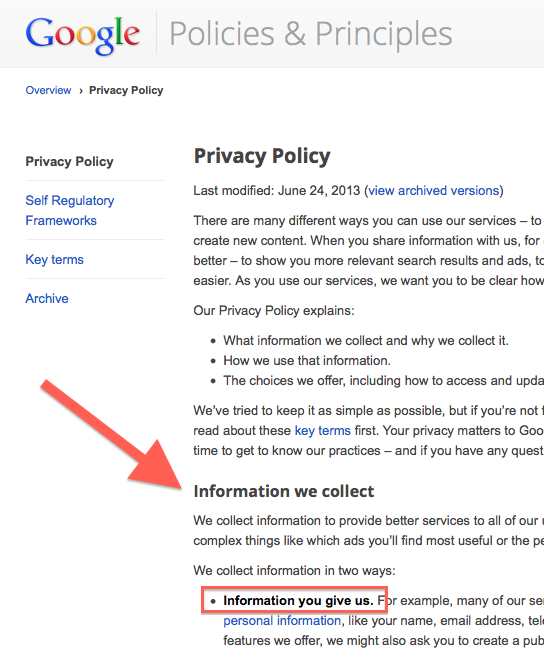testsetset
 If you’re not paying for the product, you are the product.
If you’re not paying for the product, you are the product.
Chances are you’ve heard this line before, especially in conversation about privacy and advertising — and it’s true. If you’re using an awesome, free product online, its makers are mining your data for information to sell to advertisers. And that means the company’s primary product isn’t what you’re using: It’s you.
But we do have a solution to this problem: We need to start paying for these products because while we complain about having our data sold to advertisers, these company need to make money. If we start paying, we also have more sway and say when it comes to how we should be treated as customers.
Google only yesterday began a big fight to throw out a class action lawsuit about this very subject. The company plans to argue that it’s not a violation of privacy to scan your e-mail, build a profile about your interests, and sell it to advertising companies. Why? Because, to Gmail, you have “no legitimate expectation of privacy.”
June 5th: The AI Audit in NYC
Join us next week in NYC to engage with top executive leaders, delving into strategies for auditing AI models to ensure fairness, optimal performance, and ethical compliance across diverse organizations. Secure your attendance for this exclusive invite-only event.
Gmail isn’t the product, you’re the product.
Perhaps we shouldn’t be so quick to demonize these companies for their business models.
 Most free “products” on the Internet make money through advertising. Search, e-mail, social networking, even Internet and phone access itself are all given away in exchange for your data.
Most free “products” on the Internet make money through advertising. Search, e-mail, social networking, even Internet and phone access itself are all given away in exchange for your data.
And so far, the business model works. Advertisers are willing to pay more for ad space when they’ve got a good idea of who they’re selling to. They get that “good idea” through user data.
As a result, privacy policies rarely state, “We promise not to share any of your data.” Instead they start with, “Here’s what kind of information we collect and who we share it with.” That’s not privacy — that’s the opposite.
Facebook’s privacy policy is even called a “Data Use Policy.” At least the company gets some points for honesty.
Unfortunately, this free economy is distorting our expectations. Sure, our favorite free services such as Facebook, Google, Foursquare, and others are addicting, but would you be as tied to them if you had to pay? Maybe you’d be more willing to dump them if they crossed a line. Which means crossing a privacy line could result in an effect on their bottom line — something companies will listen to.
When we pay, we can start demanding more control over the other ways companies share our data. It’s not just advertisers getting the data-love. Third-party partners work with these big companies — and sometimes pay them for their data — in order to improve their services. We can start demanding that an opt-in system be set up for our data being shared through APIs and other means.
Maybe we’re not ready to let go of our free, fun services that let us indulge in our own vanity (hello, Instagram), but we might be coming to a point where we either need to pay up or shut up.


